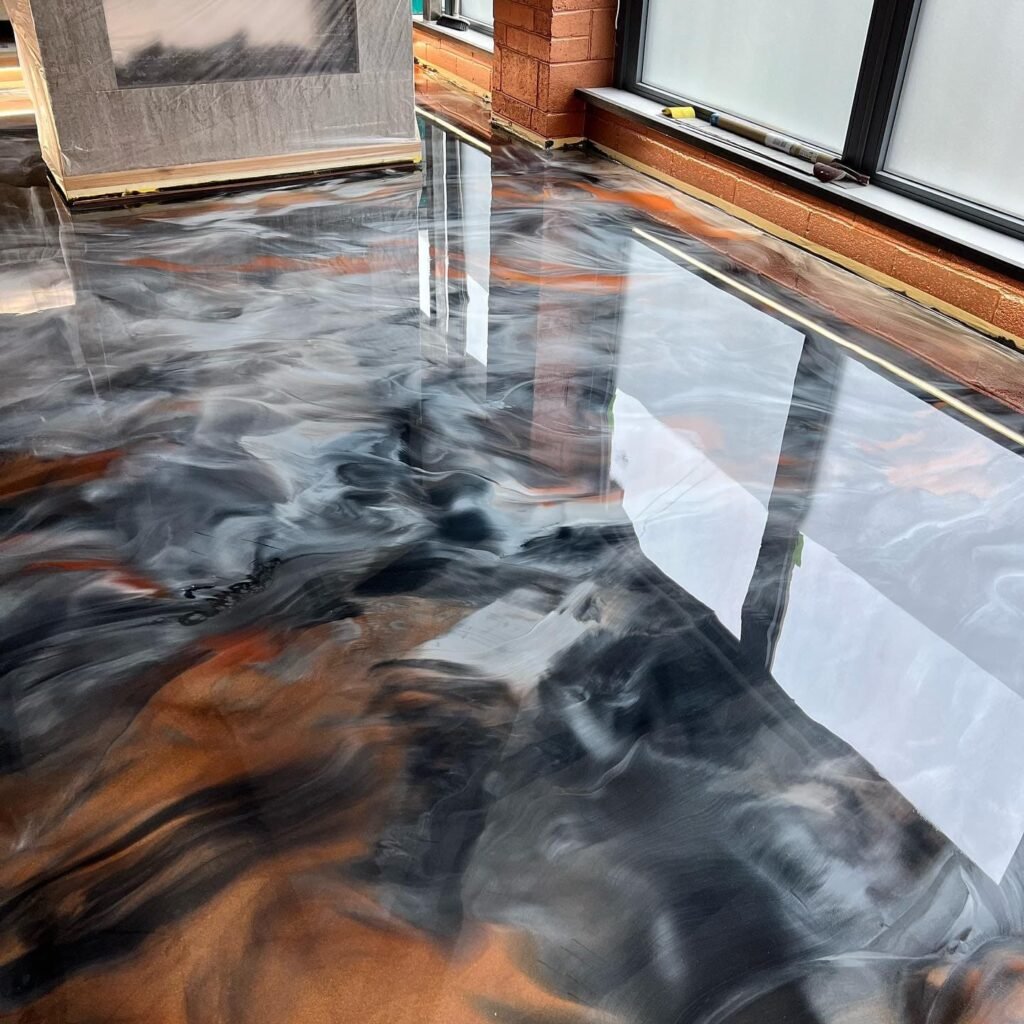When it comes to outfitting a commercial kitchen, the choice of flooring is crucial. The best commercial kitchen flooring must meet a variety of demands, including durability, ease of maintenance, and safety. Unlike residential settings, commercial kitchens experience heavy foot traffic, frequent spills, and exposure to harsh cleaning chemicals. This makes the selection of the right flooring material essential to ensuring both functionality and longevity. Options range from slip-resistant tiles and vinyl to seamless epoxy and rubber flooring. Each type has its own set of advantages and can be chosen based on specific needs and conditions in your kitchen environment.
Factors to Consider for Commercial Kitchen Flooring
Durability: In a commercial kitchen, the flooring must withstand not only high foot traffic but also potential impacts from dropped items and heavy equipment. Materials such as epoxy and rubber are popular due to their resilience and ability to handle the rigorous demands of a commercial kitchen setting.
Safety: Safety is paramount in a commercial kitchen. Flooring should offer slip resistance to prevent accidents caused by spills and splashes. Textured surfaces and slip-resistant finishes help to enhance grip and reduce the risk of slips and falls.
Ease of Maintenance: Maintaining cleanliness is crucial in a kitchen environment. The chosen flooring should be easy to clean and resistant to stains and odors. Options like vinyl and epoxy offer seamless surfaces that are easier to keep hygienic and free from contaminants.
Popular Flooring Options for Commercial Kitchens
Vinyl Flooring: Vinyl is a popular choice due to its affordability and ease of installation. It comes in a variety of designs and can mimic the look of more expensive materials. Vinyl is also relatively easy to clean, making it a practical choice for busy kitchens.
Epoxy Flooring: Epoxy is a high-performance option known for its durability and resistance to stains and chemicals. Its seamless nature helps to prevent bacteria growth and makes cleaning straightforward. Epoxy can be customized with different colors and finishes, allowing for aesthetic flexibility.
Rubber Flooring: Rubber flooring is another excellent choice for commercial kitchens. It provides a cushioned surface that reduces fatigue for staff who spend long hours on their feet. Additionally, rubber flooring is slip-resistant and can be easily maintained.
Tile Flooring: Ceramic and porcelain tiles offer durability and are resistant to high temperatures and spills. However, grout lines can be a challenge to clean and may harbor bacteria if not properly maintained.
Benefits of High-Quality Commercial Kitchen Flooring
Investing in high-quality commercial kitchen flooring can lead to long-term benefits. Durable materials can withstand the wear and tear of a busy kitchen environment, reducing the need for frequent replacements and repairs. Additionally, flooring that is easy to clean helps to maintain a hygienic environment, which is crucial for food safety.
Cost-Effectiveness: Although some flooring options may have a higher upfront cost, their durability and low maintenance requirements can lead to cost savings over time. For example, epoxy and rubber flooring might be more expensive initially but can offer significant savings in terms of maintenance and replacement costs.
Enhanced Safety: High-quality flooring materials that offer slip resistance and cushioning can significantly reduce the risk of accidents in the kitchen. This not only protects employees but also helps to prevent potential legal issues related to workplace safety.
Installation and Maintenance Tips
Proper installation is key to maximizing the lifespan and performance of commercial kitchen flooring. It is advisable to work with experienced professionals who understand the specific requirements of a commercial kitchen. Proper preparation of the subfloor and correct application of the flooring material are essential for achieving the best results.
Regular maintenance is also crucial. This includes routine cleaning to prevent the buildup of grime and periodic inspections to identify and address any issues promptly. For instance, keeping grout lines clean in tile flooring and ensuring that seams in vinyl or rubber are intact can help maintain the integrity of the flooring.
Conclusion
Selecting the right commercial kitchen flooring involves considering factors such as durability, safety, ease of maintenance, and cost. Options like vinyl, epoxy, rubber, and tile each offer distinct advantages that can be leveraged to meet the specific needs of your kitchen environment. By investing in high-quality materials and ensuring proper installation and maintenance, you can create a functional, safe, and visually appealing kitchen space that stands up to the demands of daily operations.
